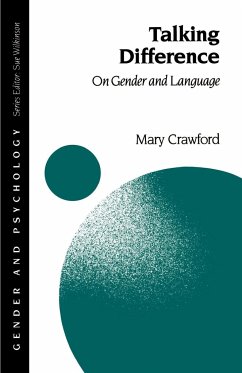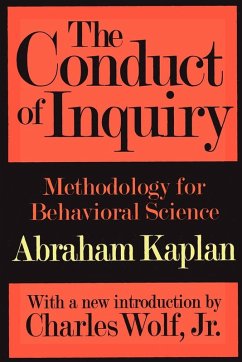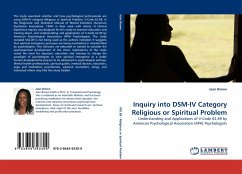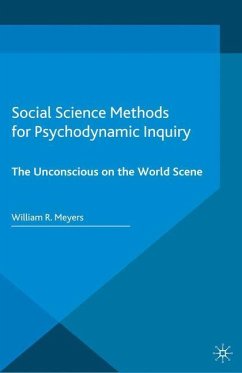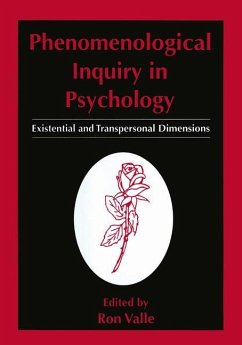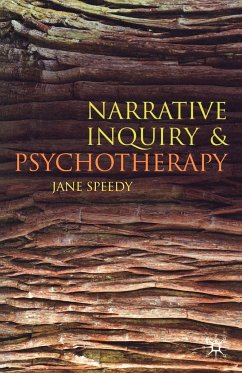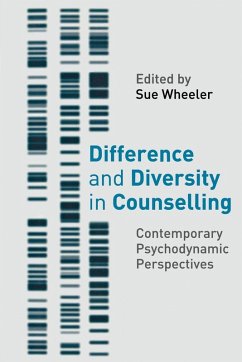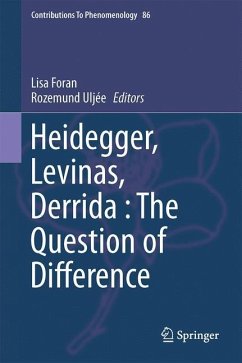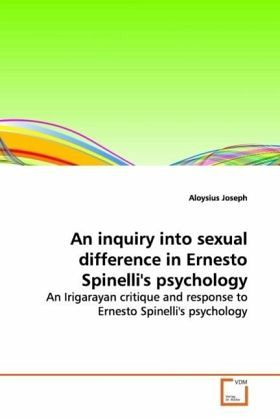
An inquiry into sexual difference in Ernesto Spinelli's psychology
An Irigarayan critique and response to Ernesto Spinelli's psychology
Versandkostenfrei!
Versandfertig in 6-10 Tagen
32,99 €
inkl. MwSt.

PAYBACK Punkte
16 °P sammeln!
Philosopher-psychoanalyst Luce Irigaray claims that all inter-subjective relations are subtended by sexual difference and that forgetting this is ignoring a foundational aspect of human relations. For her, sexual difference is the particular relation to the body and to language that structures inter-subjectivity. Ernesto Spinelli, a contemporary scholar-practitioner of existential phenomenological psychology is particularly attuned to the constitution of inter-subjectivity in therapeutic praxis. An analysis of his own therapeutic praxis reveals a blind spot in his work. This blind spot prevent...
Philosopher-psychoanalyst Luce Irigaray claims that
all inter-subjective relations are subtended by
sexual difference and that forgetting this is
ignoring a foundational aspect of human relations.
For her, sexual difference is the particular
relation to the body and to language that structures
inter-subjectivity. Ernesto Spinelli, a contemporary
scholar-practitioner of existential phenomenological
psychology is particularly attuned to the
constitution of inter-subjectivity in therapeutic
praxis. An analysis of his own therapeutic praxis
reveals a blind spot in his work. This blind spot
prevents him from realizing certain inter-subjective
possibilities in his work with clients; namely, the
possibilities afforded by articulating a
specifically other. Using Irigaray, Aloysius Joseph
makes the case that Spinelli s therapeutic praxis
can benefit from paying attention to a perceptual
and a sensory economy that is rooted in the client s
sexuate body and history. He suggests that this will
not only revitalize Spinelli's version of
existential phenomenology but also continue to
adhere to its objective of challenging the cultural
assumptions of our time.
all inter-subjective relations are subtended by
sexual difference and that forgetting this is
ignoring a foundational aspect of human relations.
For her, sexual difference is the particular
relation to the body and to language that structures
inter-subjectivity. Ernesto Spinelli, a contemporary
scholar-practitioner of existential phenomenological
psychology is particularly attuned to the
constitution of inter-subjectivity in therapeutic
praxis. An analysis of his own therapeutic praxis
reveals a blind spot in his work. This blind spot
prevents him from realizing certain inter-subjective
possibilities in his work with clients; namely, the
possibilities afforded by articulating a
specifically other. Using Irigaray, Aloysius Joseph
makes the case that Spinelli s therapeutic praxis
can benefit from paying attention to a perceptual
and a sensory economy that is rooted in the client s
sexuate body and history. He suggests that this will
not only revitalize Spinelli's version of
existential phenomenology but also continue to
adhere to its objective of challenging the cultural
assumptions of our time.




